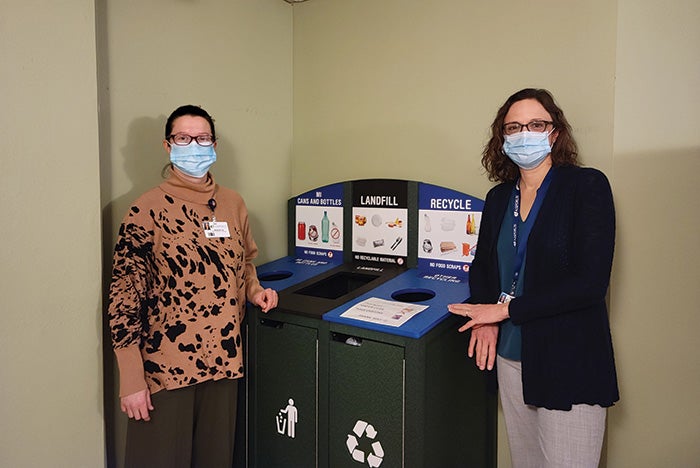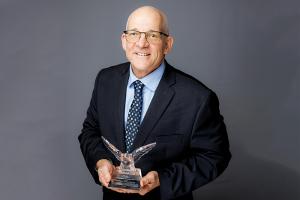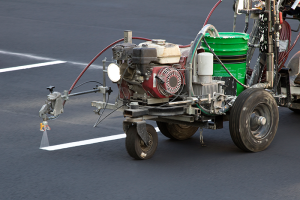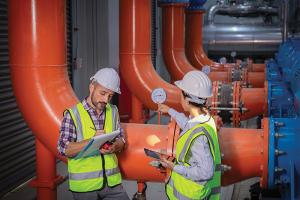Hospital recycling program makes impressive gains

From left: Green Team Co-Chairs Mariah Maggio and Lindsay Jenson display one of the many waste management stations used by hospital staff.
Image courtesy of Aspirus Keweenaw Hospital
In just a few years, the quickly expanding recycling program at Aspirus Keweenaw Hospital, Laurium, Mich., is seeing impressive results.
Guided by the hospital’s Green Team, Aspirus Keweenaw has implemented several recycling initiatives, including adding a single-stream recycling dumpster that yielded 1.44 tons of recyclables the first time it was emptied. For comparison, that’s about the same weight as a Toyota Corolla. In single-stream recycling, materials such as cardboard, paper, plastic and glass containers are collected in one bin for off-site processing. The successful recycling initiative was added in 2021.
“The last time I looked, the dumpster was full again,” says Mariah Maggio, patient experience coordinator and Green Team co-chair at Aspirus Keweenaw. “We hope this is the new normal. And recycling is one of the easiest things we can do to become a more sustainable organization.”
Aspirus Keweenaw Hospital is part of Aspirus Health, Wausau, Wis., a nonprofit, community-directed health system including four hospitals in Michigan and 13 hospitals in Wisconsin. In 2018, Aspirus Health introduced a systemwide sustainability initiative with goals to reduce its carbon footprint by 80% (equivalent to 36,000 metric tons), and its energy costs by 50%, saving $4 million, by 2030.
Aspirus Keweenaw identifies recycling opportunities across the hospital and clinics, diverting as much as possible from the garbage stream (e.g., pill bottles, recyclable paper, and metal and plastics) headed to the landfill. The hospital’s environmental services, nutritional services and facilities teams are critical to its successful recycling efforts.
Because municipal recycling is not available near the hospital, the Green Team hosts a monthly employee recycling day, inviting staff to bring single-stream recycling from home.
“Employees who live near Aspirus Keweenaw would have to travel about 12 miles to drop off recycling at a center and pay a fee, so this really makes it easy for them,” Maggio says.
The Green Team hopes the hospital’s dedication to recycling will lead to an overall culture of recycling. Aspirus Keweenaw is working with community partners to help lead efforts to expand recycling options for people living in its service area.
“With the help of partners across the system, we are trying to become pioneers in embedding recycling in this community,” says Lindsay Jenson, talent delivery partner and Green Team co-chair at Aspirus Keweenaw.
Other initiatives at the hospital include introducing electric and hybrid vehicles to its fleet, installing LED lighting, adopting meatless meals and using sustainable cleaning products.



